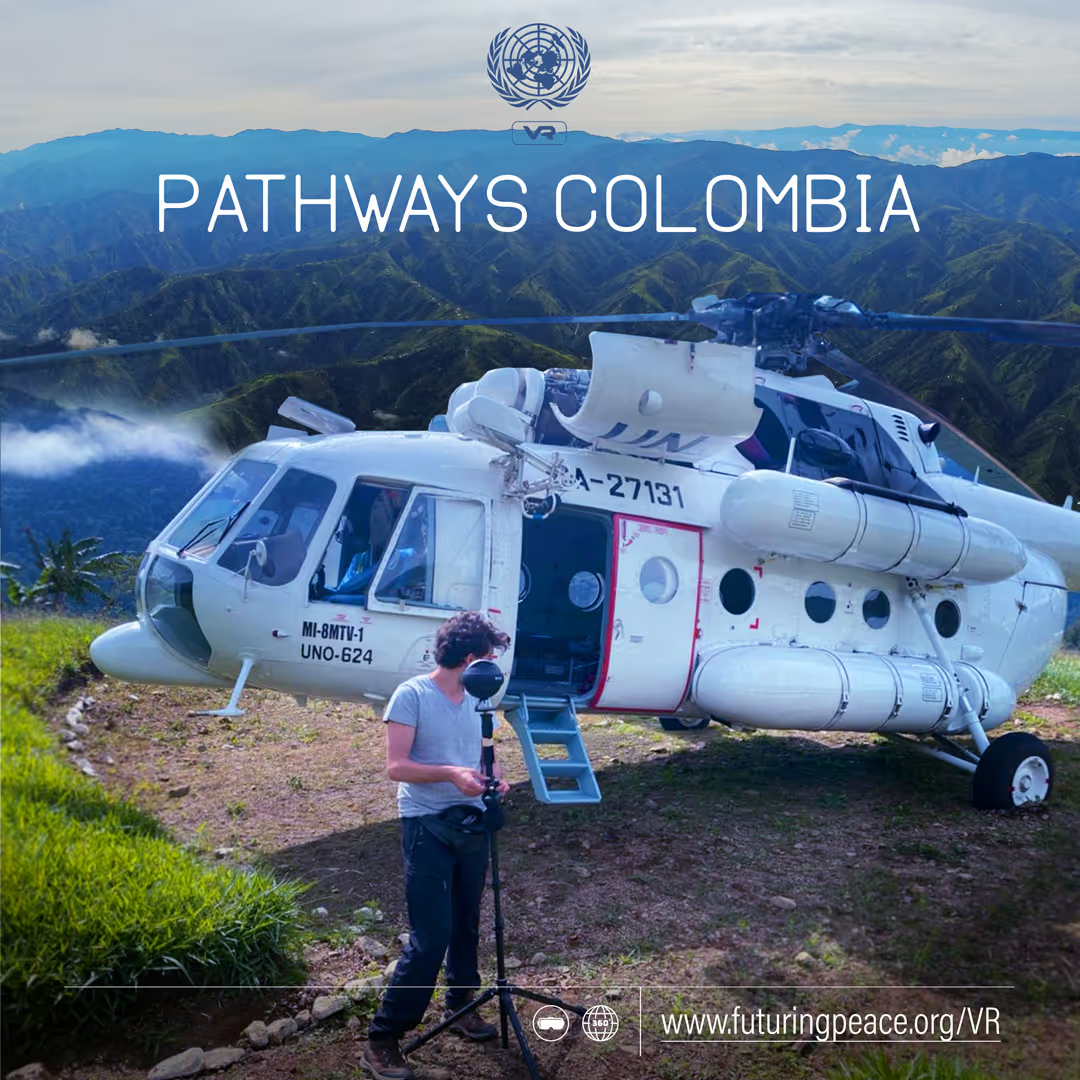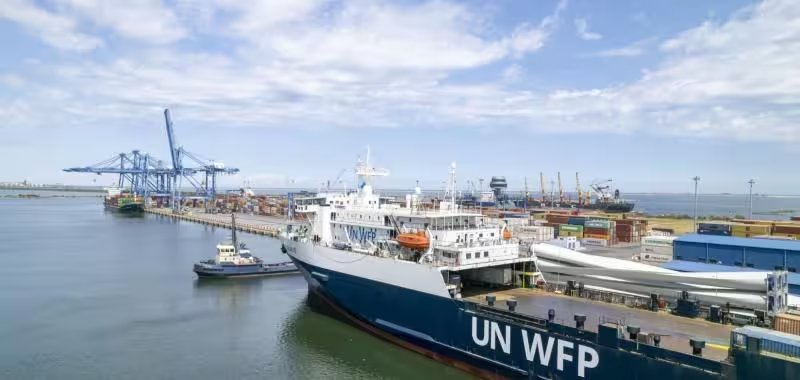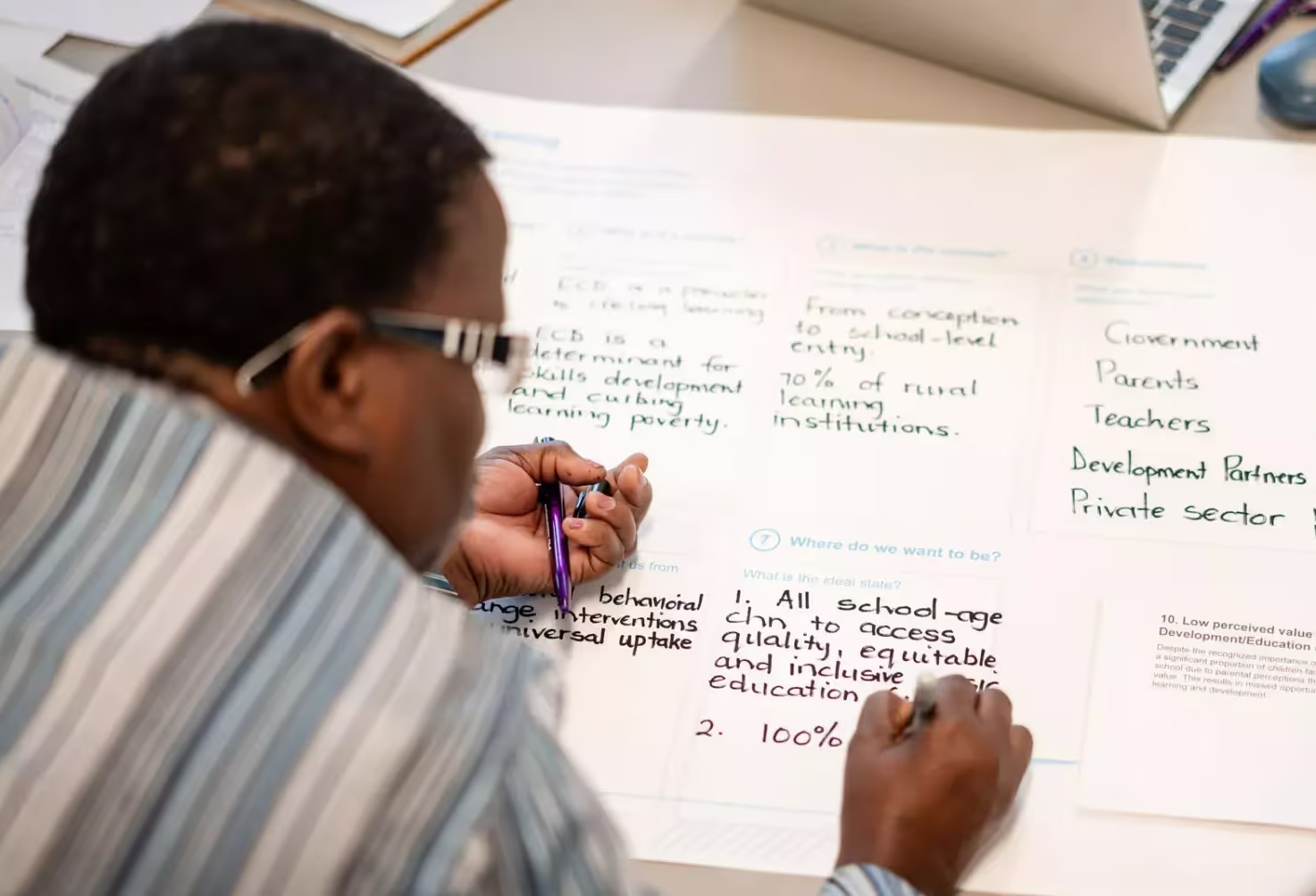Pathways Colombia

“Pathways Colombia” is an immersive virtual reality (VR) experience about the peace process in Colombia. As Colombia commemorates the 5th anniversary of the signing of the 2016 Final Peace Agreement which brought an end to more than five decades of conflict between the former FARC-EP, the film focuses on the challenges and opportunities of peace consolidation in Colombia, including reintegration, security, and reconciliation efforts. “Pathways Colombia” comprises three episodes that will give you an impression of how it is like to be on the ground in Colombia and introduce you to the personal story of former combatants as well as local communities and victims of the conflict. Through their voices, the VR experience illustrates achievements and obstacles in the reintegration and reconciliation process, while at the same time bringing to light persisting security challenges and resilience of all those committed to achieving sustainable peace in the country.


.avif)

